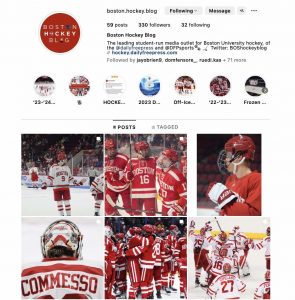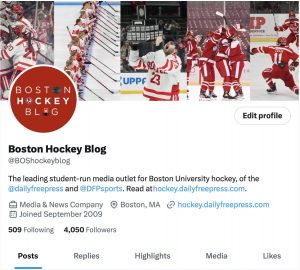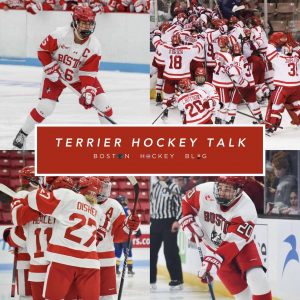When BU visits another high profile hockey school, such as North Dakota this weekend, is BU compensated (air fare, lodging, food, other monies) by the host school in any way for coming to play? And vice versa, does BU compensate the likes of Michigan, Denver, Minnesota to come play at Agganis? – David Fitzgerald
In short, not usually. It’s more common for teams to be compensated for travel costs when they go away to tournaments that have sponsors. The rest of the time, it usually doesn’t happen, because if a team makes a big trip – like BU going to Grand Forks – the team that hosts the first time around often makes the trip in reverse the next year, as will be the case with UND during the 2013-14 season. A similar case is the BU-University of Denver series. Last year DU came to Agganis in October, and this season the Terriers will play out there Dec. 29. So the costs generally wind up evening out over time.
I wanted to know if anyone on the team’s family is affected by autism, being that Autism Speaks is such a focus for the BU hockey team. – Anonymous
Well, the team’s involvement with Autism Speaks – most recently a fundraising walk in late September – dates back longer than any of the current athletes on the team. Jack Parker has mentioned on multiple occasions he has a close friend with a child with autism, so that provided some initial inspiration to get involved.
While we wouldn’t pry into each athlete’s life to see if their family is affected by autism, Mary Nieto, mother of junior forward Matt Nieto, emailed us (in response to the blog comment with this question) to tell us Matt has a 12-year-old sister with Down Syndrome and autism whom he is very close with. The siblings try to Skype every week, Mary wrote, and “when he comes home they are inseparable.” Matt also volunteers at the Ernest P. Willenberg Special Education high school in San Pedro, Calif., when he’s in the area, and he donates his old hockey equipment to the school’s floor hockey team.
Although others may not be personally affected, by all accounts the players get pretty into it and enjoy working with Autism Speaks. Sometimes players stay involved with similar charity work even after moving on, most notably Matt and Kevin Gilroy. The former co-founded Athletes-4-Autismlast year.
Believe it or not, most of the players try to take it easy in the hours leading up to a game. When they’re home they regularly visit T. Anthony’s for a pre-game meal – chicken cutlets and penne for most of them – and from what we can tell, based mostly off answers to our sporadic “7 Questions” feature, the athletes try to relax and get in the zone, so to speak. We’ve seen them listen to music and sit in the empty stands for some mental prep, and if anyone does anything outlandish in the locker room to get ready, we aren’t there to see it.
Always wondered what the team eats when they are going on a road game. Do they eat together before leaving or do they eat on their own as far as a pre game meal. – Anonymous
According to junior goaltender Anthony Moccia, the team eats together before games on the road. However, the actual content of the meal varies depending on what is available to them and what they are in the mood for. Moccia said that a few of the team favorites are steak and potatoes or some sort of pasta dish, such as chicken parmesan.
I’m asking you guys to tell me what happened with UMaine hockey a couple weekends ago against St. Lawrence. People are blaming our coach Tim Whitehead. I don’t know if he is the problem as he’s done well in the past. – Scott, Orono
Maine has struggled this season in part due to all it lost from last year. It lost Hockey East Player of the Year Spencer Abbott along with star forward Brian Flynn, who combined for 110 points last year. The team also lost a few of its secondary scoring options in forward Matt Mangene and top defenseman Will O’Neill. Now, Maine is left with some good players in senior captain Joey Diamond and junior forward Mark Anthoine, but it is looking for a lot of production out of its freshmen early on. Maine was a team that relied on one line last season.
Diamond is the only player returning from that line to this year’s team and he already has 10 penalties through the team’s seven games this season, which leads the team. Senior defenseman Nick Pryor, who will have to be a leader among the team’s defensemen, is a team-worst minus-8 on the season. Junior goaltender Dan Sullivan, who was set to be the starting goalie for the Black Bears, has a mediocre .893 save percentage and 3.18 goals-against average on the season. If Maine wants to bounce back from its 1–6–1 start to the season, it will need improvements in all three phases of the game. These struggles don’t necessarily fall on Whitehead’s shoulders, but he will gradually deserve more of the blame if Maine continues to struggle this year because it is his job to return the team to Hockey East prominence.




Recent Comments